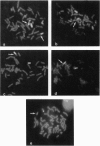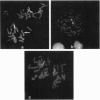Abstract
Fluorescent in situ hybridization with chromosome-specific DNA libraries (chromosome painting) is an important new method for assessing chromosome rearrangements. In the research presented in this paper, two familial reciprocal translocations have been studied in the balanced and unbalanced forms, using both traditional G-banding techniques and chromosome painting. Although for each case two chromosomes were involved in the rearrangement, we found that only one chromosome library was suitable for detecting the translocation. These findings illustrate both the potential and the limitations of chromosome painting as a diagnostic tool in cytogenetics.
Full text
PDF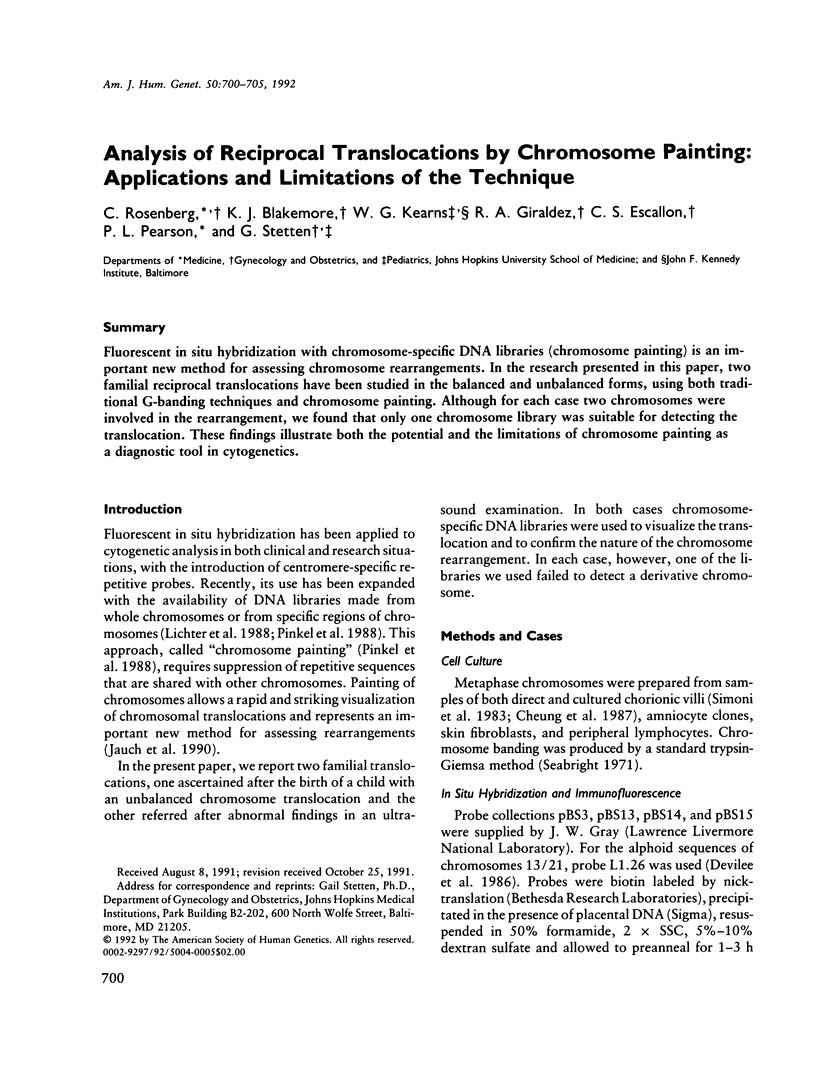
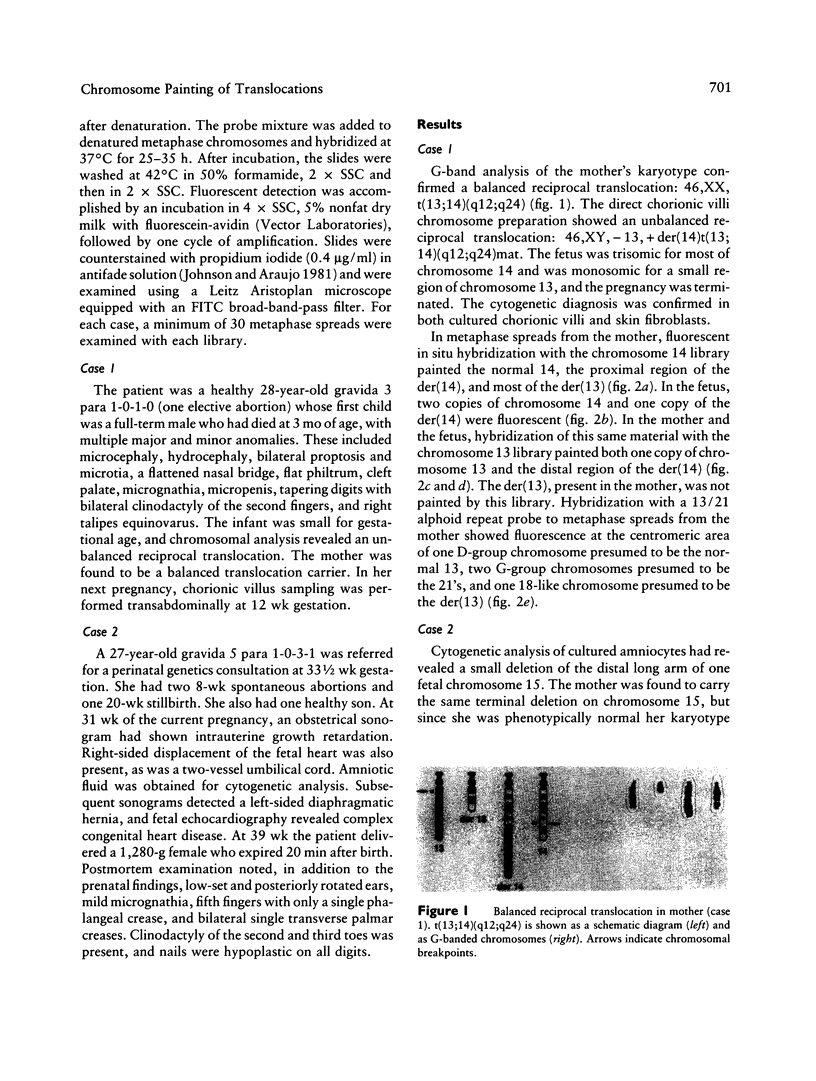
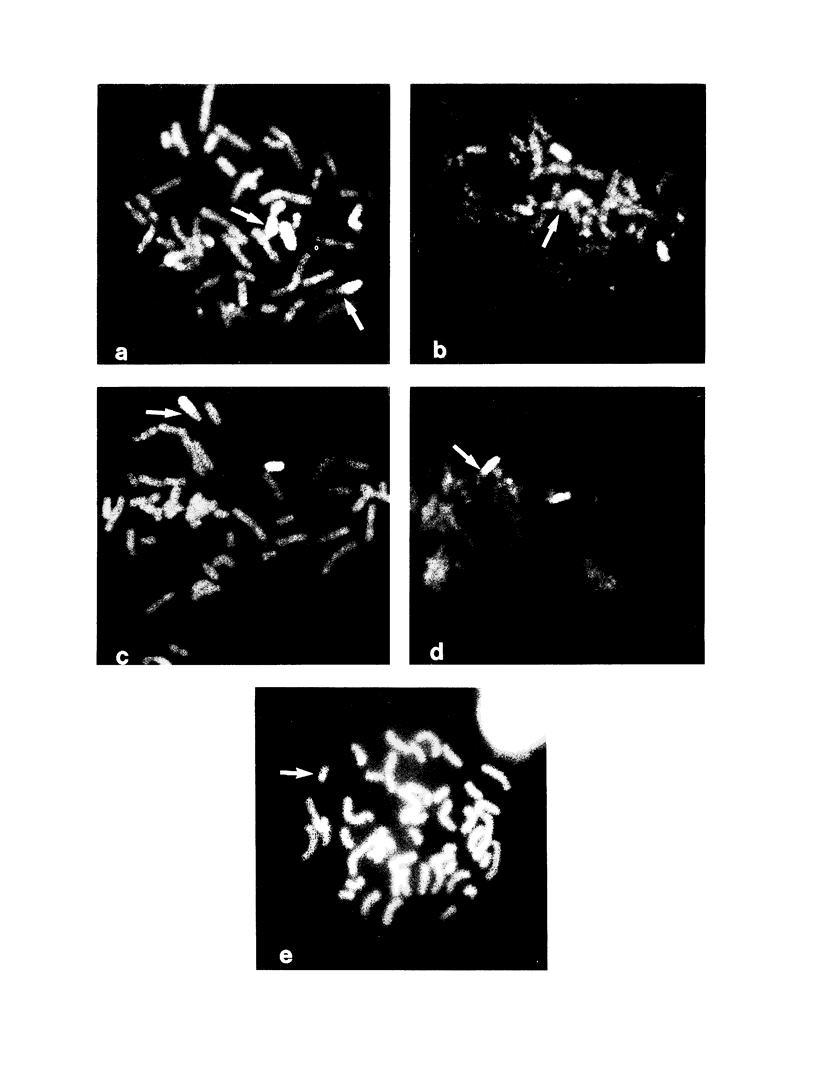
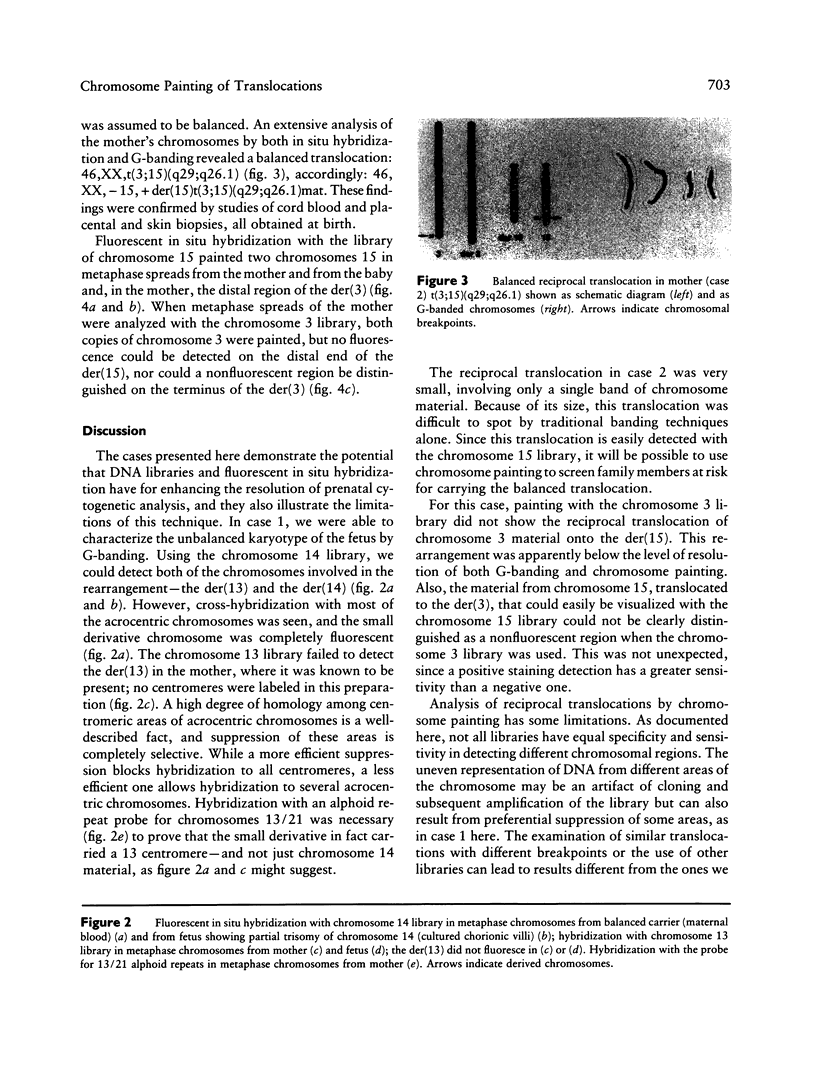
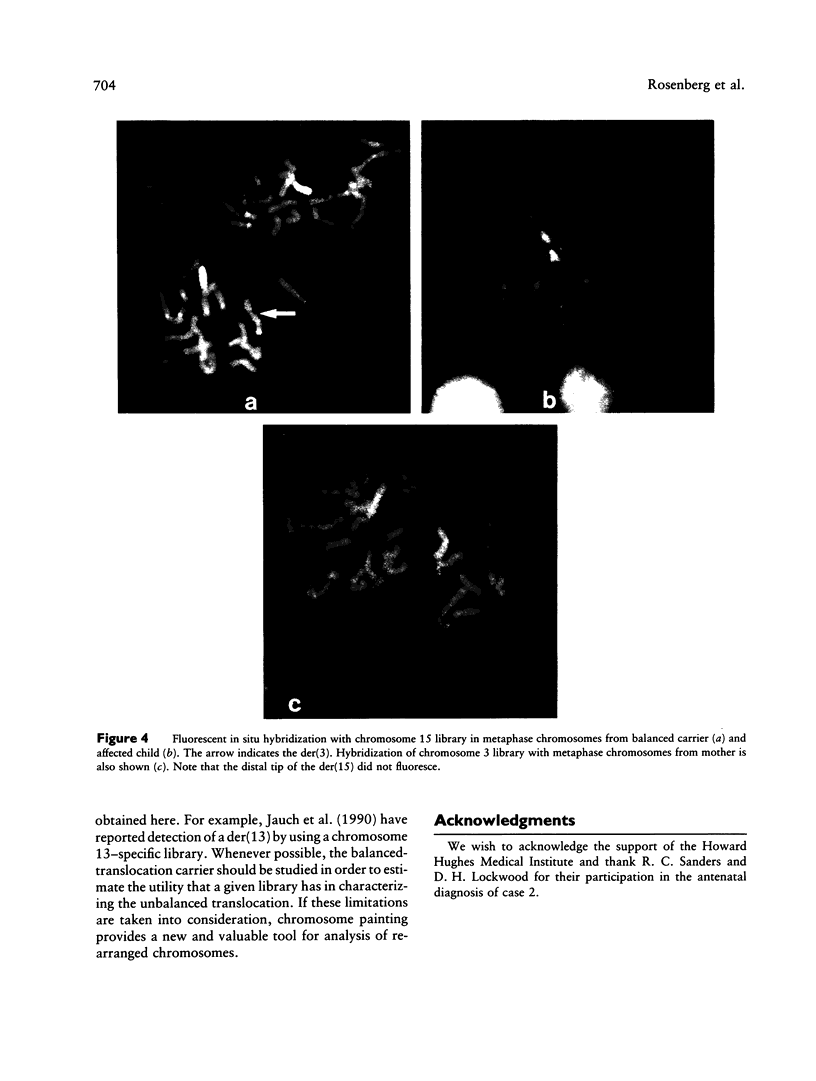
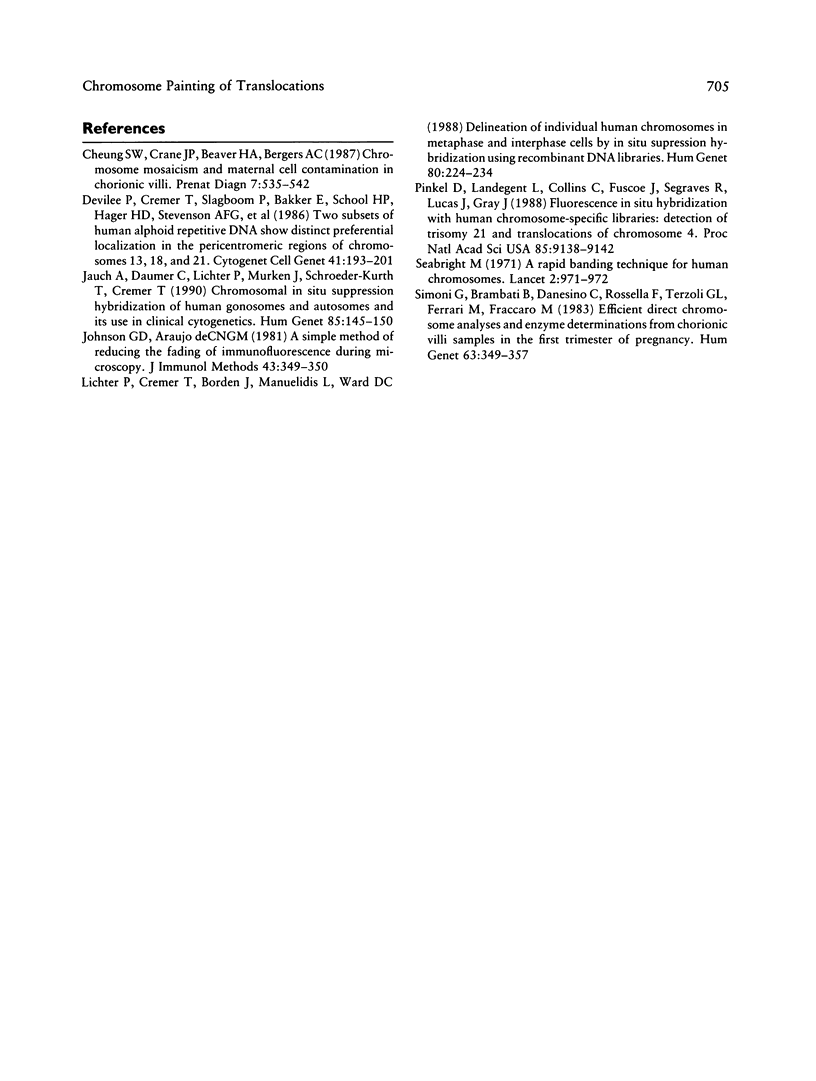
Images in this article
Selected References
These references are in PubMed. This may not be the complete list of references from this article.
- Cheung S. W., Crane J. P., Beaver H. A., Burgess A. C. Chromosome mosaicism and maternal cell contamination in chorionic villi. Prenat Diagn. 1987 Oct;7(8):535–542. doi: 10.1002/pd.1970070802. [DOI] [PubMed] [Google Scholar]
- Devilee P., Cremer T., Slagboom P., Bakker E., Scholl H. P., Hager H. D., Stevenson A. F., Cornelisse C. J., Pearson P. L. Two subsets of human alphoid repetitive DNA show distinct preferential localization in the pericentric regions of chromosomes 13, 18, and 21. Cytogenet Cell Genet. 1986;41(4):193–201. doi: 10.1159/000132229. [DOI] [PubMed] [Google Scholar]
- Jauch A., Daumer C., Lichter P., Murken J., Schroeder-Kurth T., Cremer T. Chromosomal in situ suppression hybridization of human gonosomes and autosomes and its use in clinical cytogenetics. Hum Genet. 1990 Jul;85(2):145–150. doi: 10.1007/BF00193186. [DOI] [PubMed] [Google Scholar]
- Johnson G. D., Nogueira Araujo G. M. A simple method of reducing the fading of immunofluorescence during microscopy. J Immunol Methods. 1981;43(3):349–350. doi: 10.1016/0022-1759(81)90183-6. [DOI] [PubMed] [Google Scholar]
- Lichter P., Cremer T., Borden J., Manuelidis L., Ward D. C. Delineation of individual human chromosomes in metaphase and interphase cells by in situ suppression hybridization using recombinant DNA libraries. Hum Genet. 1988 Nov;80(3):224–234. doi: 10.1007/BF01790090. [DOI] [PubMed] [Google Scholar]
- Pinkel D., Landegent J., Collins C., Fuscoe J., Segraves R., Lucas J., Gray J. Fluorescence in situ hybridization with human chromosome-specific libraries: detection of trisomy 21 and translocations of chromosome 4. Proc Natl Acad Sci U S A. 1988 Dec;85(23):9138–9142. doi: 10.1073/pnas.85.23.9138. [DOI] [PMC free article] [PubMed] [Google Scholar]
- Seabright M. A rapid banding technique for human chromosomes. Lancet. 1971 Oct 30;2(7731):971–972. doi: 10.1016/s0140-6736(71)90287-x. [DOI] [PubMed] [Google Scholar]
- Simoni G., Brambati B., Danesino C., Rossella F., Terzoli G. L., Ferrari M., Fraccaro M. Efficient direct chromosome analyses and enzyme determinations from chorionic villi samples in the first trimester of pregnancy. Hum Genet. 1983;63(4):349–357. doi: 10.1007/BF00274761. [DOI] [PubMed] [Google Scholar]



